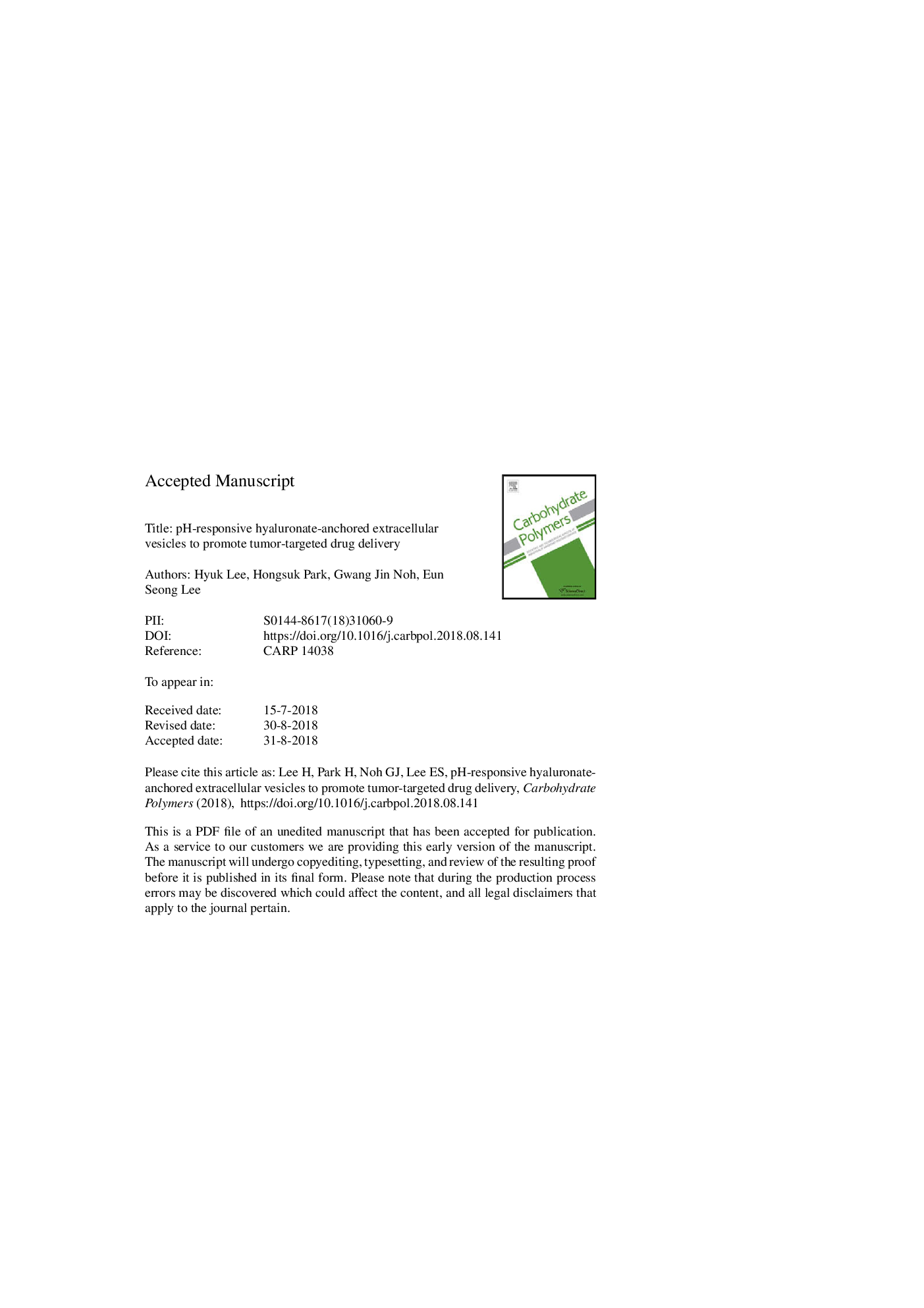| Article ID | Journal | Published Year | Pages | File Type |
|---|---|---|---|---|
| 10141264 | Carbohydrate Polymers | 2018 | 38 Pages |
Abstract
pH-Responsive drug vehicles targeting the specific extracellular pH of tumors have served as potent tools to overcome the limitation (e.g., low tumor seletivity) in antitumor drug delivery system. Here, we describe the advantage of pH-responsive extracellular vesicles (HDEA@EVs) containing the hyaluronic acid grafted with 3-(diethylamino)propylamine (HDEA) and a model antitumor drug, doxorubicin (DOX). We demonstrated their physicochemical characteristics through in vitro cell endocytosis, in vitro tumor cell toxicity, in vivo biodistribution, and in vivo tumor regression efficacy experiments. Because the HDEA@EVs efficiently responded to extracellular tumor pH (pH 6.5) and actively bound to CD44 receptors on HCT-116 tumor cells, the EVs selectively inhibited CD44+ tumor cell growth in vitro, and CD44+ tumor development in vivo. From these results, we conclude that HDEA@EVs can help in designing effective strategies for pharmacologic intervention in tumor therapy.
Related Topics
Physical Sciences and Engineering
Chemistry
Organic Chemistry
Authors
Hyuk Lee, Hongsuk Park, Gwang Jin Noh, Eun Seong Lee,
